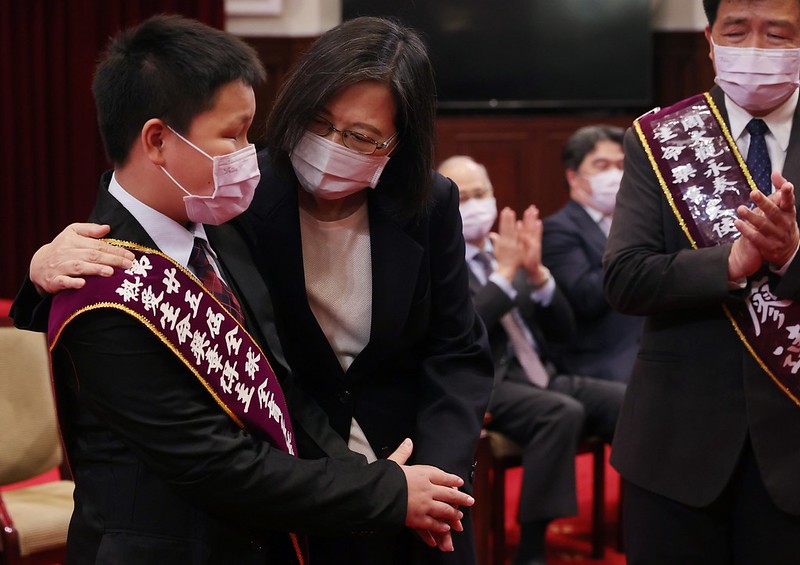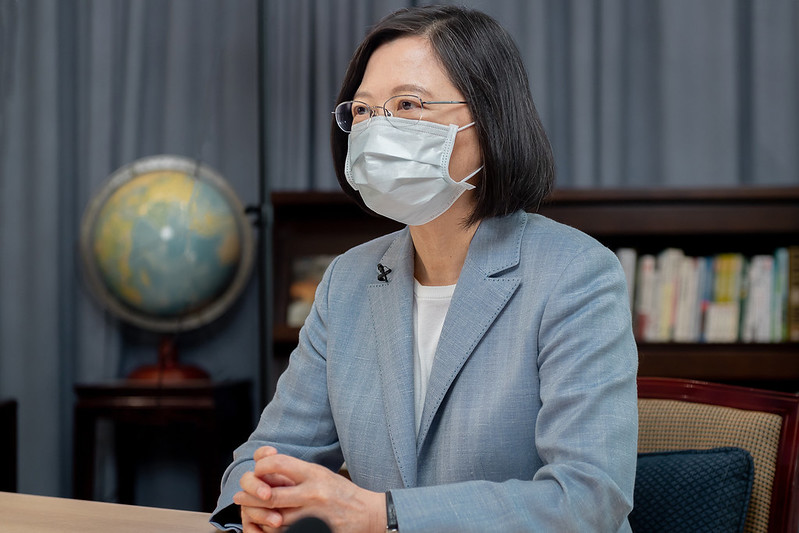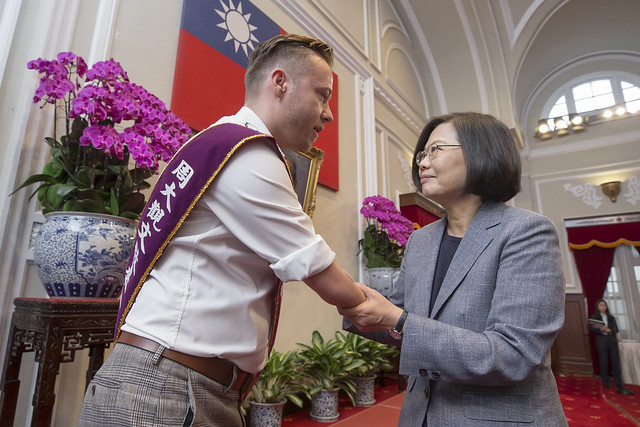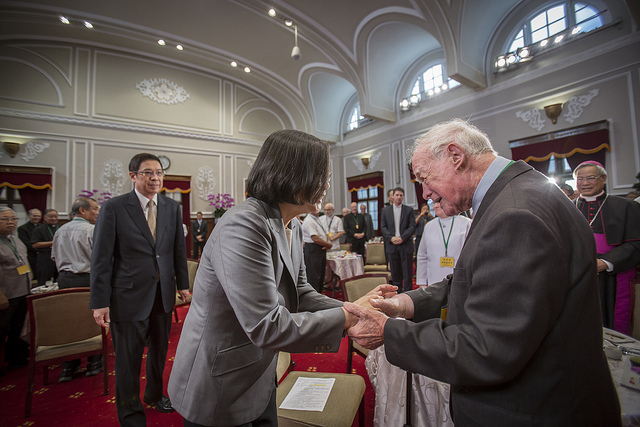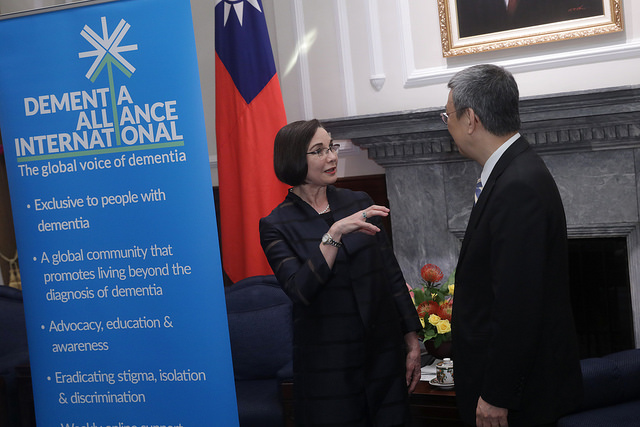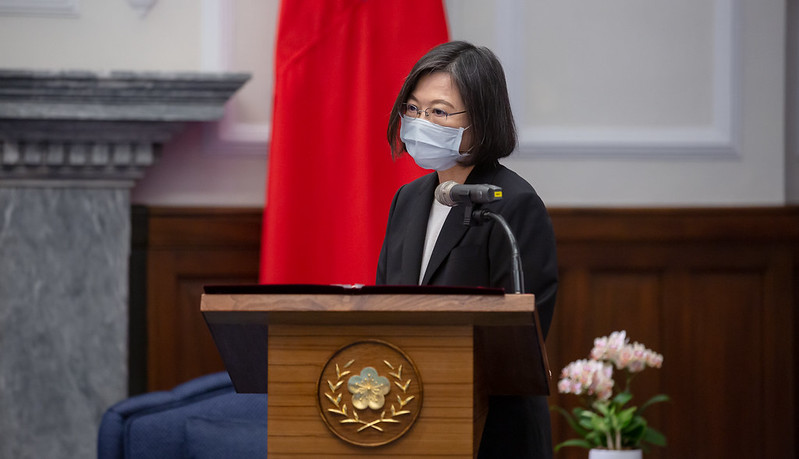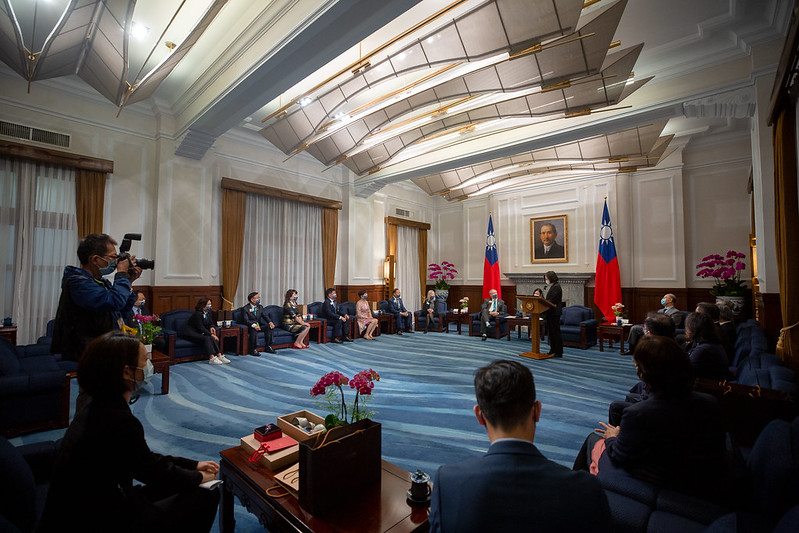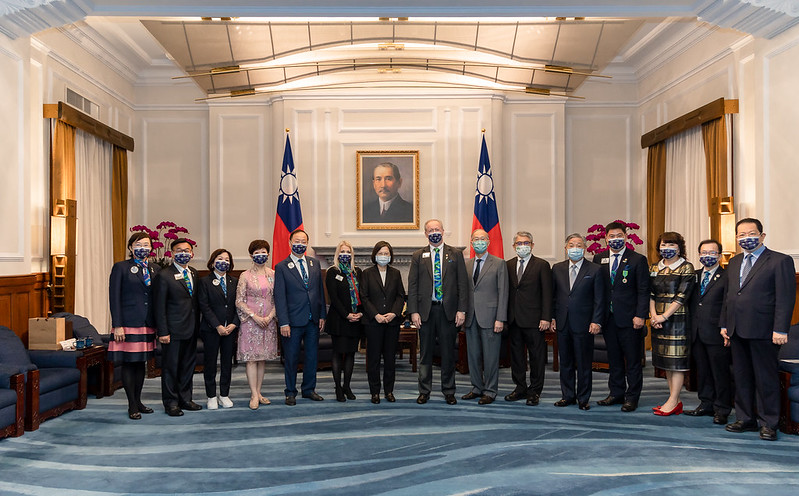News & activities
 News releases
News releases
On the morning of November 16, President Tsai Ing-wen met with a delegation led by Lions Clubs International (LCI) President Brian Sheehan. In remarks, President Tsai expressed hope that under Mr. Sheehan's leadership, Lions Club members in Taiwan and LCI will engage in closer exchanges and cooperation to serve Taiwan and the global community. The president also thanked Lions Club members for their efforts to advance Taiwan's foreign relations and deepen our links with the world.
A translation of President Tsai's remarks follows:
I want to welcome Mr. and Mrs. Sheehan to Taiwan. My warm congratulations to you, Mr. Sheehan, on your election as international president of LCI. You have long been an important Lions leader at both the international and local levels, and I believe that under your leadership, LCI will make even greater contributions to the world.
For years, Lions Club members from across the globe have upheld their sense of mission, reaching out to communities to provide a diverse array of services. LCI is also indispensable to international humanitarian assistance efforts. Since Russia's invasion of Ukraine, the LCI Foundation has contributed approximately US$2.7 million to settling Ukrainian refugees and providing urgently needed healthcare and daily necessities.
In addition, LCI's charitable fundraising program – Campaign 100: LCIF Empowering Service – has raised US$325 million, with Taiwan's Lions Clubs accounting for more than US$40 million, the highest amount from any single country. It is clear that the Lions' spirit of giving transcends all borders. Taiwanese Lions Club members have also drawn worldwide attention to Taiwan as a force for good, leaving us with a deep sense of admiration for their work.
Earlier this month, Taiwan and the United States signed a memorandum of understanding on development and humanitarian assistance cooperation. This represents another step in institutionalizing the robust Taiwan-US partnership in promoting development and humanitarian assistance. Taiwan will continue to support international efforts to collectively advance a better and more sustainable future.
I hope that under Mr. Sheehan's leadership, Taiwanese Lions Club members and LCI will engage in closer exchanges and cooperation to serve Taiwan and the global community. I want to thank all Lions for their efforts to advance Taiwan's foreign relations and deepen our links with the world.
This is Mr. Sheehan's second trip to Taiwan. I hope that during this visit, you have the opportunity to learn more about Taiwan and that you will return often. I wish you a rewarding and successful trip.
